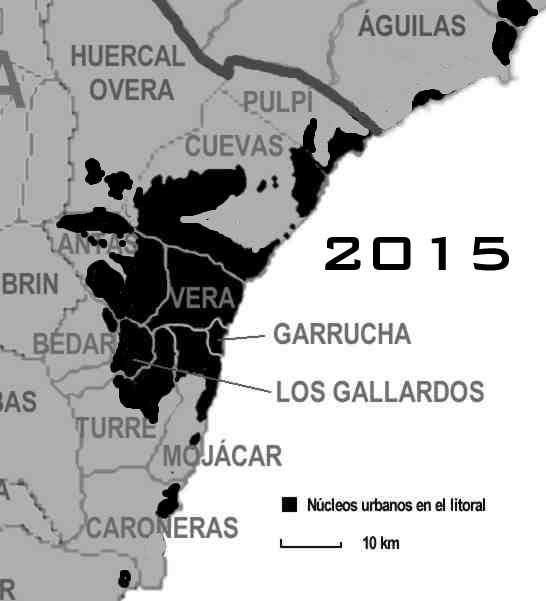EALING LOCAL STRATEGIC PARTNERSHIP REPORT FOR EXECUTIVE BOARD
APPENDIX E GUIDELINES FOR MANAGERS DEALING WITH ALCOHOLDEALING WITH DAMP CONDENSATION AND MOULD GROWTH IN
DEALING WITH THE MEDIA IN THE EVENT
VITAMINS AND MINERALS INVOLVED IN WOUND HEALING VITAMINS
0 REPORT FOR SEALING DRILLED GROUNDWATER WELLS SUBJECT TO
1 During the Healing Process Cold Soft Foods are
LSP Membership
Ealing Local Strategic PartnershipReport for Executive Board Title: LSP MembershipReport from: Policy and PerformanceAuthor: Ann Griffiths |
Item number |
|
7 |
|
Background
The LSP Review conducted in 2010 identified some interest amongst members of LSP boards and projects to review the membership of the LSP Executive groups, further to identification of new priorities for the partnership, a focus on increasingly action-focussed work, and changing local and national requirements and circumstances.
The LSP review suggested that the Delivery Management Group (DMG) take the lead on this review of membership. DMG considered the overarching priorities and principles of LSP membership in Feb 2011 and further considered specific membership proposals in Mar 2011. This paper sets out some information and options for consideration by the LSP Executive in determining future membership of the DMG and Executive groups of the LSP.
|
|
|
Purpose of report
This report to LSP Executive:
Sets out some outline principles by which it is proposed LSP membership should be decided Makes recommendations as to the more specific future Membership of the LSP
|
|
|
Recommendations
It is recommended that LSP Executive:
Consider and agree the outline principles for future LSP Membership including a refreshed terms of reference for the LSP Executive, with any amendments required
Consider the proposed specific details of future membership, agreeing next steps in achieving a refreshed membership for 2011/12 and the basis on which partners should be involved
|
|
MEMBERSHIP OF EALING LSP: Executive and DMG
Scope
This paper considers membership only of the most strategic overarching boards of the LSP, the Executive and its delivery arm, the DMG.
It does not make explicit proposals for other boards sitting as part of the LSP, on the basis that the Children’s Trust, Health & Wellbeing Board, and Safer Ealing Partnership are undergoing separate and independent transition work, and the Stronger Communities Board now operates under the management of the VCS. (See Appendix A for more detail on LSP Structures transition)
Background and historical membership and TOR
The LSP Executive’s current membership still remains as it was determined following a significant reconfiguration 2005, with some minor change of personnel and minor changes resulting from interest being expressed from other partners to get involved.
This historical membership was determined during a phase when the LSP met every 6 weeks and was intended primarily to oversee management of Neighbourhood Renewal Funding and delivery of the Sustainable Community Strategy and Local Area Agreement, including recommendations to the Council’s Cabinet around the allocation of Area Based Grant.
With the shift in emphasis for LSPs and an increasing focus on delivering action focussed work prioritising value for money and activities around key local challenges, it is appropriate that our future membership is fit for purpose for the roles and responsibilities we have now and in future years.
It is also appropriate given the developments in the focus of our LSP that the terms of reference for the LSP Executive are reviewed.
The historic Terms of Reference for the LSP Executive, and proposed future TOR are set out in Appendix B, for consideration and comment, and to inform further discussion over the focus of future membership of the Executive.
Findings of the LSP Review
Many of those stakeholders with whom discussions were held for the LSP review expressed views on the current and potential membership of the LSP in the future.
The overarching picture of comments was as follows:
May be too heavily skewed towards some service providers currently. Needs to be dynamic and responsive to issues, and the right balance of expertise as priorities change; e.g. consider involving the business sector and youth service representatives.
At the Executive Level, the board should be made up of just the key decision makers/high influence partners
Individuals sometimes bring less of a community outcomes focus and consideration of what they can bring to solve problems than might be ideal. Membership should be on the basis of bringing active contributions to solutions, and considering strategic use of all partners’ resources and opportunities
There may be opportunities to get broader partners involved in opportunities for creative thinking and idea development; e.g. more ‘off side engagement’ with not just the ‘usual suspects’ – e.g. awaydays focussed on specific issues.
The DMG and projects should be led and supported by different organisations, not just the Council. This should include more representation from grassroots organisations in practical work – projects need to include everyone relevant, right down to the ground.
Make agendas more interesting for all. Use meetings for more than just monitoring – also advising on strategic work, and working out ideas for the future – with three to four key issues maximum.
The national picture of LSP membership at the time of the latest partnerships audit is provided in Appendix B as an indicator of the sorts of bodies that local partnerships have tended to include. It should be noted however that this information is prior to last year’s change in government, and that it appears approaches to LSPs are in different areas are now beginning to vary more significantly dependent on local priorities.
RECOMMENDATIONS
LSP Executive is asked to consider and agree, with amendment as necessary, the following general principles of membership
General Principles of future membership
1) Membership of the LSP Executive should consist a focussed group of senior officers and members from key organisations, and be determined by a clear and definitive understanding of which local representatives are able to deliver to this requirement at the highest strategic level.
2) It must also result in a justifiable balance of representation on the Executive board from across different partners and sectors. This may take the form of a maximum number of representatives from any single sector, and a maximum overall membership of the Executive.
3) Membership should be determined by initial consideration through DMG and the formulation of recommendations to LSP Executive, who will then make formal decisions as a majority as to the key partners required to deliver the priorities of the partnership. In future years if Executive agrees there is a need to review membership a similar process will be conducted.
4) DMG should consist key partners required at any given time to ensure effective active delivery of the projects agreed by the Executive as priority for that year. This may differ from those represented at a Strategic level on the Executive board and provide opportunities for organisations not involved in the future Executive to remain fully involved in implementation of its projects.
Membership of DMG will be more fluid than that of the Executive, open to change over time as the projects and priorities develop, but should always be agreed by the Chair of the DMG, and with notification to and opportunity for modification by the LSP Executive if appropriate.
5) Partners committing to involvement in the LSP Executive or DMG should do so on the agreement that they will contribute solutions to meetings and projects, attending a minimum of 75% of meetings annually and nominating a named representative to attend if they are unable to.
6) Partners may wish to specify a refreshed Terms of Reference for the LSP Executive on the basis of these membership principles. An initial draft is provided for consideration at Appendix B.
Specific Proposals
Existing representatives sitting on the Executive and DMG are set out in the table overleaf.
LSP Executive is asked to discuss the highlighted current considerations and recommendations regarding membership and agree or otherwise to each recommendation.
Where ‘election’ is proposed in recommendations below it is anticipated that this could take the form of an informal agreement between organisations, as long as all potential representatives have been consulted during this process. Some groups of organisations may wish to pursue a more formal route.
|
Organisation |
LSP Executive |
LSP DMG |
Considerations and recommendations |
|
Ealing Council |
Leader (Chair) Chief Executive |
Dir P&P Head of Policy |
|
|
Police |
Borough Commander |
Superintendent |
|
|
PCT |
Chief Executive |
Head of Partnerships |
GP consortia involvement – suggest nominating a rep to be included from next meeting |
|
VCS |
ECVS (VC) EREC ECIL |
Southall Community Alliance (C) ECVS x 2 |
Number of reps – no other body except the Council has so many reps. Suggest maximum 2 on each body. |
|
Ealing Hospital |
Chief Executive |
|
|
|
WLMHT |
Chief Executive (invited) |
|
Confirm with WLMHT whether they wish to be represented |
|
Fire Service |
Borough Commander |
|
|
|
RSLs |
Dominion Housing – Head of Community Involvement |
Dominion Housing - Head of Community Involvement |
A single provider represented – suggest refresh of representation electing rep from consultation with all providers? |
|
Housing |
Previously, Ealing Homes |
Previously, Ealing Homes |
Inclusion of Council Housing rep? Suggest involvement at least at DMG level |
|
Education providers |
EHWL College – Principal
|
EHWL College – Principal / Deputy |
Consider whether there are any other providers we wish to include, and if so, suggest election to represent |
|
JCP |
Chief Executive |
Borough Partnership Manager |
|
|
Local Businesses |
Chamber of Commerce (invited) |
|
Consider if involvement is sought, best way to secure this, and best representative of local business |
Appendix A: Update on LSP structures
The LSP review concluded that the future LSP should include only statutory boards or those that service areas or organisations who lead on particular issues within the community wish to maintain on the basis of their value to their particular service areas.
The DMG now leads on ensuring the delivery of work to drive progress on the LSP’s priorities for the coming year – a series of value for money focussed projects that will deliver benefits in services for people experiencing disadvantage in terms of crime, health or worklessness and poverty issues locally.
At the same time, work is ongoing to develop the HWBB and Children’s Trust to take account of and reflect new national priorities and requirements, and to deliver to meet local needs as efficiently as possible. The SEP remains the lead on community safety locally.
Beyond this there remain ongoing questions as to future structures and whether there is a need to develop any other existing partnerships (e.g. at the level previously referred to as ‘third tier’) into more aligned structures that work to the overarching focus of the LSP.
This may be a particularly relevant questions regarding meeting the priority of ‘poverty and worklessness’, where a ‘second tier’ partnership does not currently exist.
In the interests of not setting up further groups, the Executive may wish to consider whether the Skills and Employment Group could play the role of the lead agency for ensuring delivery on the LSP’s commitment in this area, alongside the DMG’s management of key projects, and potential future LSP Projects around skills and worklessness in the borough.
Some of this will be worked through in the refresh of the Community Strategy and development of the action plan for this, which will form the key work programme of the partnership in coming years. This will identify where there may be gaps in our methods of delivery and accountability for key pieces of work. However, there remains an opportunity to feed in options for development of structures in the coming year for consideration as part of this process.
Appendix B: Role and Purpose of the LSP Executive:
Proposed Refreshed Terms of Reference
Historic TOR
The terms of reference agreed for the LSP Executive in 2006 were as follows:
The LSP Executive is responsible for:
Securing delivery of the Sustainable Community Strategy and the Local Area Agreement.
Continuous improvement and coherence of delivery by the Thematic Partnerships
‘Horizon scanning’ and interpretation of strategic issues and national policy to ensure LSP and Thematic Partnerships anticipate opportunities and challenges.
Ensuring governance, finance and performance management standards are met.
Scrutinising thematic partnerships in relation to community engagement, equalities, neighbourhood renewal, cohesion and sustainability.
Establishing consultation and engagement mechanisms with local people and organisations.
Promote joined up working and thinking between Thematic Partnerships.
Future TOR
The LSP Review conducted in 2010 concluded a clear role for the LSP shifting much more towards active problem solving, project work on key local issues, and delivering improvements and outcomes on strategic issues no single organisation could achieve alone.
To reflect the outcomes of the review and the changing requirements and priorities for local partnerships, it is proposed that the Terms of Reference for the LSP Executive going forward should be as follows:
The LSP Executive will:
Agree and secure delivery of a refreshed Community Strategy based around the priorities of local people
Prioritise a programme of major projects, reviewed annually, to contribute to achievement of the goals of the Community Strategy, including initially:
Producing a joint approach to collection and use of data, to enable production of a single needs assessment and work towards future joint commissioning to meet these needs
Review in partnership the families in highest need locally and design a streamlined and effective approach to meeting their needs
Develop a joint strategic approach to use of property assets locally
Conduct targetted joint work in Southall to target specific issues
Be the focus of and support the delivery of strategic value for money projects across partners in the borough, driving efficiency and reducing duplication and bureaucracy through partnership working
Take overall responsibility for the outcomes of work managed through the Delivery Management Group, Health and Wellbeing Board, Children’s Trust and Safer Ealing Partnership, ensuring effective programme and performance management of the work conducted through the LSP
Communicate effectively across the partnership the work conducted to deliver partnership efficiencies and improvements, and through the actions of individual members, build relationships between partners to progress projects and wider positive change work
Take individual and collective responsibility for focussing discussions and action on active problem solving, focussing the meetings of the LSP on sharing ideas and information to support innovation and implementation of new ideas and proposals on local priorities.
APPENDIX C: National Picture of LSP Membership
Nationally, LSP partners are distributed as follows1:
80 - 99% of LSPs included local authority executive councillors and officers; health; police; higher/further education and voluntary sector umbrella groups.
50 - 80% included government office (GO), Jobcentre Plus; the LSC; the fire service; the Chamber of Commerce; individual businesses; housing associations; and faith organisations.
Less than 50% included the regional development agency (RDA) Connexions; transport authority or operators; sport and leisure agencies; the community network; residents’ groups; and black and minority ethnic groups.
Potential ‘Partner authorities’ as defined by Local Government and Public Involvement in Health (LGPIH) Act 2007:
The Arts Council
The Broads Authority
Chief Officer of Police
District authorities
English Heritage
The Environment Agency
Fire and rescue authorities
Health and Safety Executive
The Highways Agency
Jobcentre Plus
Joint waste authorities
Joint waste disposal authorities
Skills Funding Agency
Metropolitan passenger transport authorities
Museums, Libraries and Archives Council
National Park authorities
Natural England
NHS Foundation Trusts
NHS Health Trusts
Police authorities
Primary care trusts (PCTs)
Local Probation Boards, Probation Trusts and other providers of probation service
Regional development agencies (RDAs)
Sport England
Transport for London (TfL)
Youth Offending teams
Any other organisations added by an order under Section 104(7) of the Act or by primary legislation.
1 Long Term Evaluation of Local Area Agreements and Local Strategic Partnerships: Report on the 2008 survey of all English local strategic partnerships (Volume 1), Communities and Local Government, 2009
7 C’S OF DEALING WITH DIFFICULT MEMBERS COMPLIMENT DIFFICULT
7 INFLIGHT ANNEALING OF DISPLACEMENT DAMAGE IN GAAS
ACI DEALING SIMULATION KUALA LUMPUR MALAYSIA DAY ONE –
Tags: board title:, executive board, local, ealing, report, partnership, strategic, board, executive
- WWWHISTORIA1IMAGENCL EL FASCISMO HITLER Y MUSSOLINI CONTENIDO EUROPA EN
- MST CONSULTANT ADHERENCE MEASURE (CAM) GUIDELINES FOR CAM ADMINISTRATION
- RESOLUCION NO 059 27 DE DICIEMBRE DE 1994 POR
- MANTENIMIENTO PREVENTIVO Y CORRECTIVO DE HORNOS CÓDIGO I06 03
- ECLIPSE API TABLE OF CONTENTS INTRODUCTION 1 PLUGIN DEVELOPMENT
- G UIDELINES FOR DEVELOPING A VOLUNTARY INDUSTRY CODE OF
- M DREES (1997) [ ON THE MIMICRY OF HYMENOPTERA
- COMUNICADO DE PRENSA INDRA PREMIADA POR EL CÍRCULO DE
- PRÁCTICA 5 ANÁLISIS DE CORRESPONDENCIAS SIMPLE EN LA
- CLASES ABERTAS GP MARZO 2016 LUNS 14 MARTES 15
- TERCER CURSO DE ECO DOPPLER VASCULAR PERIFERICO DESTINADO A
- CURRICULUM VITAE INFORMAŢII PERSONALE ALB LUPAȘ DACIANA ALINA STR
- 4 LEY SOBRE IMPUESTO A LA RENTA – ART
- ПРИЛОЖЕНИЕ № 1 УТВЕРЖДЕН РАСПОРЯЖЕНИЕМ ПРАВЛЕНИЯ ПФР ОТ №
- PREEK OVER LIEFDE EN VRIENDSCHAP HOOGLIED 7 1
- CURRICULUM VITAE MICHAEL S VANNIEUWENHZE PHD STANDIFORD H COX
- LINGUA E LITERATURA 1º ESO TEMAS 9
- LICEO POLITÉCNICO PAULINA VON MALLINCKRODT “EL AMOR A LOS
- BOROUGH OF OXFORD PO BOX 380 OXFORD PA 19363
- 64 ROZDZIAŁ V CHARAKTERYSTYKA EKONOMICZNA LUDNOŚCI – ŹRÓDŁA UTRZYMANIA
- CONTRATO DE TRADUCCIÓN A TANTO ALZADO ARTÍCULO 46 REMUNERACIÓN
- 403B WELK EEN VRIEND IS ONZE JEZUS MS BROMET
- U DRUŽENJE MLADIH SA HENDIKEPOM CRNE GORE ASSOCIATION OF
- THE FLEXPARTWRF FORECAST IS CONDUCTED USING THE WRFARW 3KM
- HOMILIA CUARTO DOMINGO DE PASCUA CICLO A “AL
- BAB 2 KAJIAN PUSTAKA HIPOTESIS DAN KERANGKA PEMIKIRAN
- TRANSPORT SAFETY PRIORITIES FOR AN INCOMING GOVERNMENT IMPROVING TRANSPORT
- RESUME 1 NAME DRRJAHIR HUSSAIN 2 SEX
- WNIOSEK WP 2 DATA DO PRZEDSIĘBIORSTWA ENERGETYKI CIEPLNEJ SPÓŁKA
- AGUSTÍN GONZÁLEZ GARCÍA DE ACILU AGUSTÍN GONZÁLEZ GARCÍA DE
 SORŠKO POLJE – PRIBLIŽAJMO SE NARAVI PODREČA 2622012 SORŠKO
SORŠKO POLJE – PRIBLIŽAJMO SE NARAVI PODREČA 2622012 SORŠKONAVN OG POSTADRESSE TIL SENTRALLEDDET I ORGANISASJONEN ORGANISASJONENS LOGO
 RECTANGLE 2 RECTANGLE 3 CIRCUITE 2021 AUTOCAR GRECIA
RECTANGLE 2 RECTANGLE 3 CIRCUITE 2021 AUTOCAR GRECIASAMPLE SPECIFICATION PROVIDE ONE CLEAVERBROOKS MODEL SHALL
 ILMO AYUNTAMIENTO DE ESTEPONA A V I S O
ILMO AYUNTAMIENTO DE ESTEPONA A V I S OINFORMACJA O DZIAŁALNOŚCI SĄDU REJONOWEGO W EŁKU WYMIAR SPRAWIEDLIWOŚCI
MAKING YOUR RESEARCH COUNT ADDRESSING THE NATIONAL ACADEMY OF
FLU SEASON IS APPROACHING SO IT IS TIME TO
ZÁKLADNÁ ŠKOLA ŠTÍTNIK PLÁN VNÚTROŠKOLKEJ KONTROLY CIEĽ KONTROLY
 LICEO MIGUEL RAFAEL PRADO GUÍA DE DEBATE 3 JUNIO
LICEO MIGUEL RAFAEL PRADO GUÍA DE DEBATE 3 JUNIOPROTOKÓŁ Z ZEBRANIA ZAŁOŻYCIELSKIEGO CZŁONKÓW STOWARZYSZENIA PN ODBYTEGO W
C O N C O R R E N
ZAŁĄCZNIK NR 1 DO UCHWAŁY NR XVI24503 RADY MIASTA
FROM HTTPDEVJUSTICEINITIATIVEORGDBRESOURCE2FS?FILEID17075 COMMITTEE ON ELIMINATION OF RACIAL DISCRIMINATION DISCRIMINATION
 FORM ICB RESEARCH DEGREE REGISTRATION AMENDMENT FORM PLEASE READ
FORM ICB RESEARCH DEGREE REGISTRATION AMENDMENT FORM PLEASE READ ALMERÍA–MURCIA 2015 LA DEVASTACIÓN DEL ÚLTIMO TERRITORIO VIRGEN DEL
ALMERÍA–MURCIA 2015 LA DEVASTACIÓN DEL ÚLTIMO TERRITORIO VIRGEN DELONDERNEMINGSRECHTBANK ANTWERPEN VVPP 7 – VERSIE 12042016 VRIJWILLIGE VEREFFENING
NOVA ORTOGRAFIA PALAVRAS E EXPRESSÕES MAIS USADAS COM OU
STENOZÁZNAM Z VYSTOUPENÍ „NE LEDAJAKÉHO OBČANA“ MIFKA NA 2
 BEOBACHTUNGSBOGEN AUFSCHLAG VON UNTEN VORSCHLAG ZUR DURCHFÜHRUNG A SCHLÄGT
BEOBACHTUNGSBOGEN AUFSCHLAG VON UNTEN VORSCHLAG ZUR DURCHFÜHRUNG A SCHLÄGT